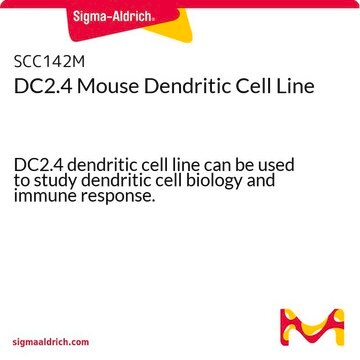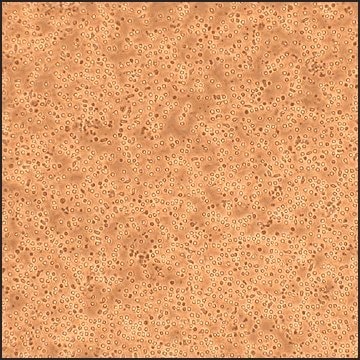C-12909
Human CD14+ Monocytes (hMoCD14+-PB)
Isolated from peripheral blood, single donor, 10 million cryopreserved cells
Sinónimos:
hMoCD14+-PB cells
About This Item
Productos recomendados
biological source
human peripheral blood
packaging
pkg of 10,000,000 cells
morphology
(monocytes)
technique(s)
cell culture | mammalian: suitable
shipped in
dry ice
storage temp.
−196°C
General description
Cell Line Origin
Application
Quality
Warning
Subculture Routine
Other Notes
Recommended products
Disclaimer
Storage Class
12 - Non Combustible Liquids
wgk_germany
WGK 1
flash_point_f
Not applicable
flash_point_c
Not applicable
Certificados de análisis (COA)
Busque Certificados de análisis (COA) introduciendo el número de lote del producto. Los números de lote se encuentran en la etiqueta del producto después de las palabras «Lot» o «Batch»
¿Ya tiene este producto?
Encuentre la documentación para los productos que ha comprado recientemente en la Biblioteca de documentos.
Artículos
Explore over 350 PromoCell products on Sigma.com, including cryopreserved blood cells and cell culture media for various human cells.
Explore over 350 PromoCell products on Sigma.com, including cryopreserved blood cells and cell culture media for various human cells.
Explore over 350 PromoCell products on Sigma.com, including cryopreserved blood cells and cell culture media for various human cells.
Explore over 350 PromoCell products on Sigma.com, including cryopreserved blood cells and cell culture media for various human cells.
Nuestro equipo de científicos tiene experiencia en todas las áreas de investigación: Ciencias de la vida, Ciencia de los materiales, Síntesis química, Cromatografía, Analítica y muchas otras.
Póngase en contacto con el Servicio técnico






